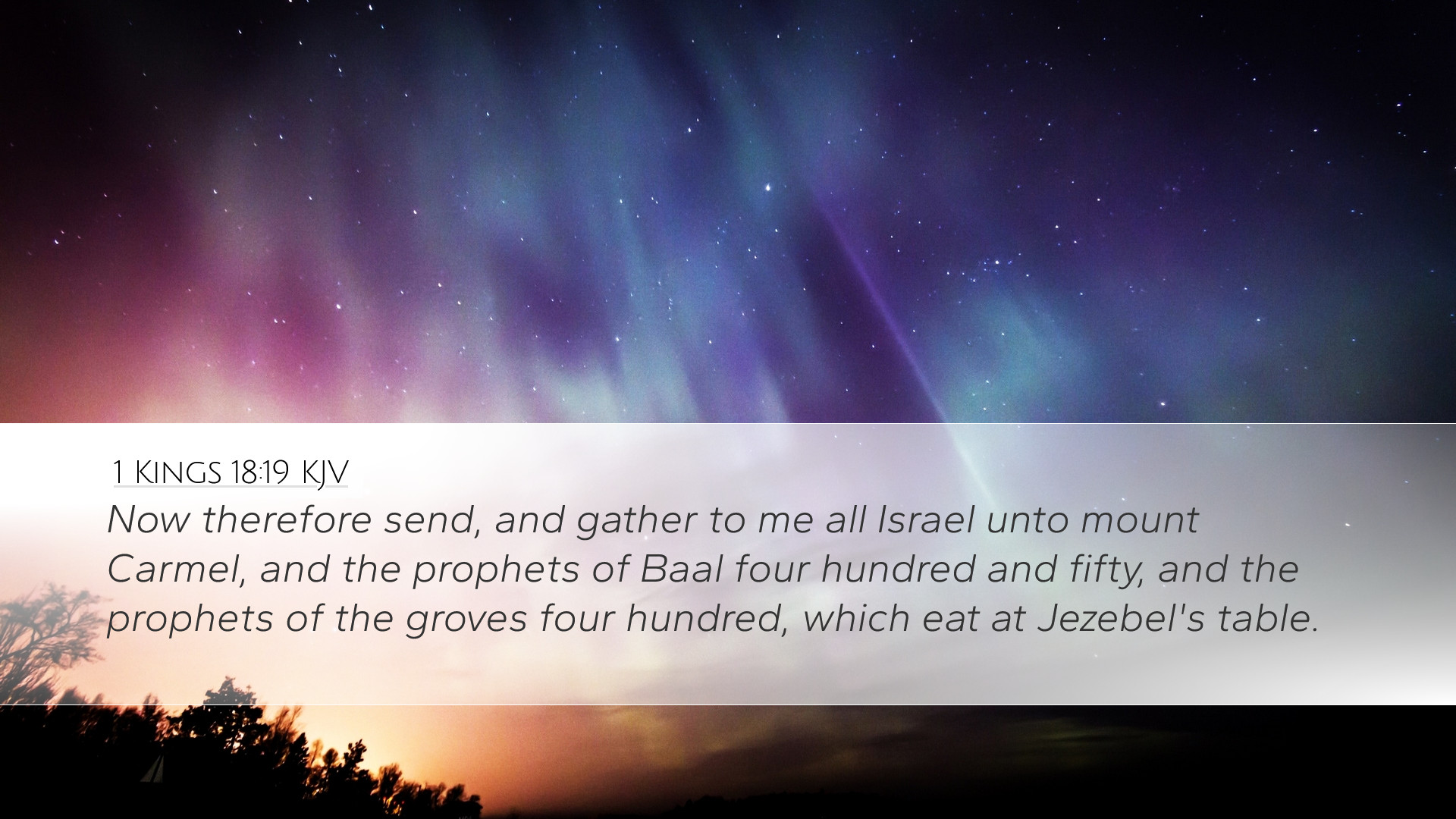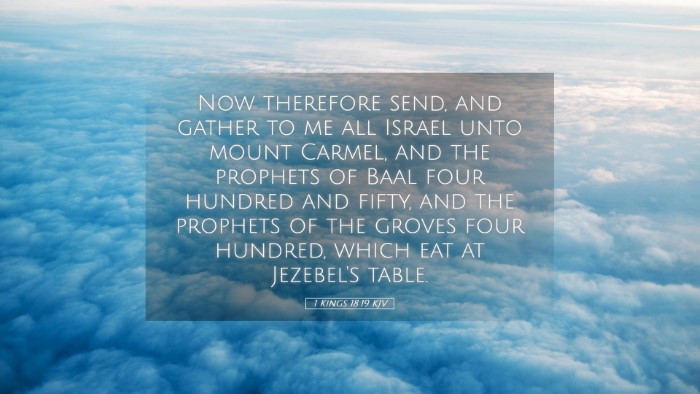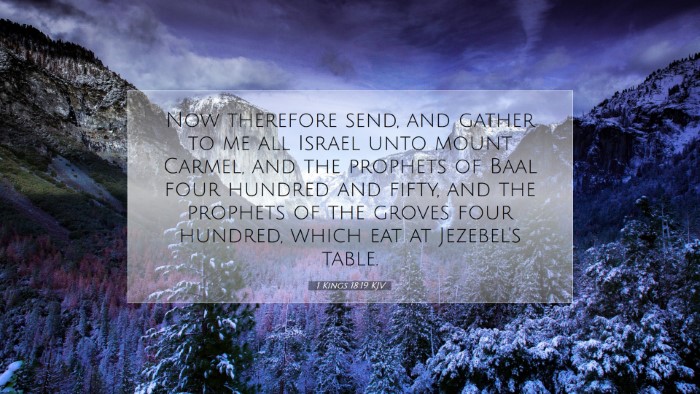Commentary on 1 Kings 18:19
Text of the Verse:
“Now therefore send and gather to me all Israel unto Mount Carmel, and the prophets of Baal four hundred and fifty, and the prophets of the groves four hundred, which eat at Jezebel's table.”
Introduction
The text of 1 Kings 18:19 presents a pivotal moment in the narrative of Elijah’s confrontation with the prophets of Baal. This passage is critical for understanding the spiritual climate of Israel at that time and sets the stage for the dramatic events that follow. This commentary integrates insights from various public domain sources, providing depth to its interpretation for pastors, students, and scholars alike.
Contextual Background
In the context of ancient Israel, King Ahab and Queen Jezebel had led the nation into rampant idolatry, establishing the worship of Baal as the national religion. The invitation to gather all of Israel implies a decisive and public confrontation between Yahweh and Baal. The gathering on Mount Carmel is significant as it was a prominent location for worship, allowing for a large audience and a theophany that would be memorable.
The Call to Gather
Elijah's Authority: Elijah’s directive to gather Israel demonstrates his prophetic authority. This bold call reveals Elijah's confidence in God amidst a nation steeped in apostasy. Matthew Henry remarks that Elijah “stands alone; he is a single prophet amidst throngs of idolaters,” emphasizing the solitary role of the prophet in confronting evil.
National Convocation: The gathering symbolizes an opportunity for national repentance and a confrontation of truth. Albert Barnes notes that “the assembly of all Israel was necessary to bring the evidence of God’s power before the people.” This gathering is not merely a political event but a summons to witness the supremacy of the true God.
The Prophets of Baal and the Groves
A Contrast of Worship: The mention of four hundred fifty prophets of Baal and four hundred prophets of the groves highlights the depth of idolatry in Israel. Adam Clarke points out that these prophets were not just religious figures but were also supported by the political power of Jezebel. This two-pronged challenge illustrates a society corrupted at both individual and institutional levels.
Societal Implications: The selection of prophets to face Elijah reflects the extensive influence that these idols held over the people. The reference to “those who eat at Jezebel's table” illustrates how the king's court was complicit in Baal worship, creating a systemic issue of apostasy. The prophets were thus not merely religious figures, but symbols of a corrupt alliance between state and religion.
Spiritual Confrontation
The Challenge to Faith: Elijah’s challenge serves as a profound spiritual confrontation. The call to collect these prophets and the people of Israel creates a scenario for a showdown that will unmistakably declare which god is real. In this encounter, Elijah stands as a representative of the divine and righteous cause. Matthew Henry articulates this as “a trial that would either confirm or condemn the people’s choice of worship.”
A Call to Decision: The context of this assembly prompts a clarion call to decision-making. The Israelites are placed before the stark reality of choosing between Yahweh or Baal, invoking the age-old question of whom they will serve. Such a challenge echoes throughout Scripture, propelling the narrative forward to a crucial moment of divine manifestation.
Theological Reflections
God’s Sovereignty vs. Idolatry: The events on Mount Carmel dramatically highlight the tension between divine sovereignty and human choices. The gathering underscores the urgency of returning to true worship. The prophetic challenge invites reflection not only on personal conviction but also on communal fidelity to God. The historical significance of this moment extends beyond the immediate context, challenging every generation to consider its commitment to Christ in the face of competing ideologies.
Lessons for Today: The confrontation depicted in this passage serves as an archetype for modern believers, calling them to confront contemporary idols within their culture. Whether they be materialism, secularism, or complacency in faith, pastors and theologians can draw parallels from this narrative to advocate for an intentional and courageous stand for faith in the modern world.
Conclusion
In conclusion, 1 Kings 18:19 is replete with implications for understanding both the nature of God and the character of mankind. Elijah’s courageous call to gather all of Israel reflects a broader invitation to witness God’s power and a challenge to confront the idolatry of the age. This moment in Israel’s history serves as a timeless reminder of the necessity for bold faith and unwavering commitment to the God who reveals Himself in might and majesty. Pastors, students, and scholars are encouraged to delve into this rich narrative, extracting lessons that resonate through the corridors of time.


